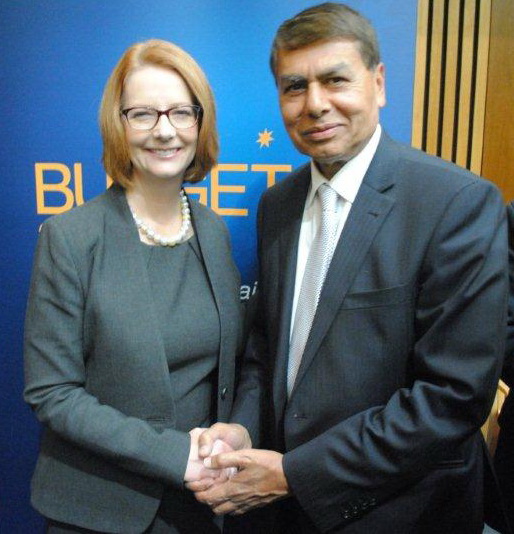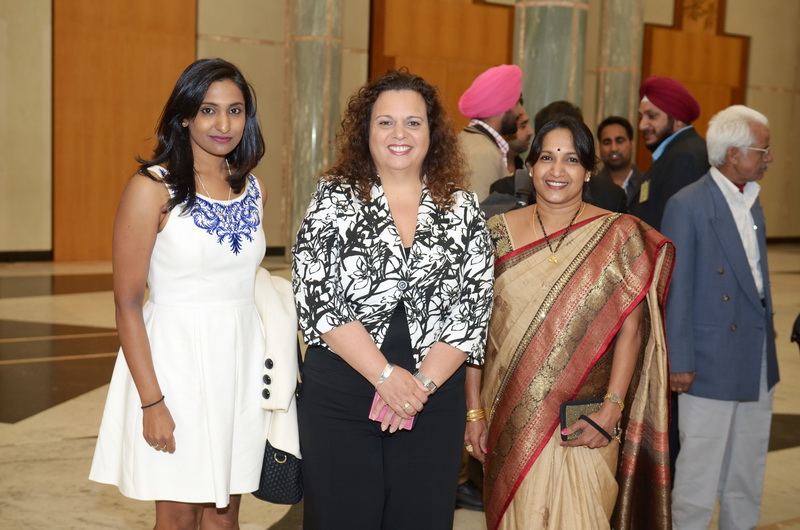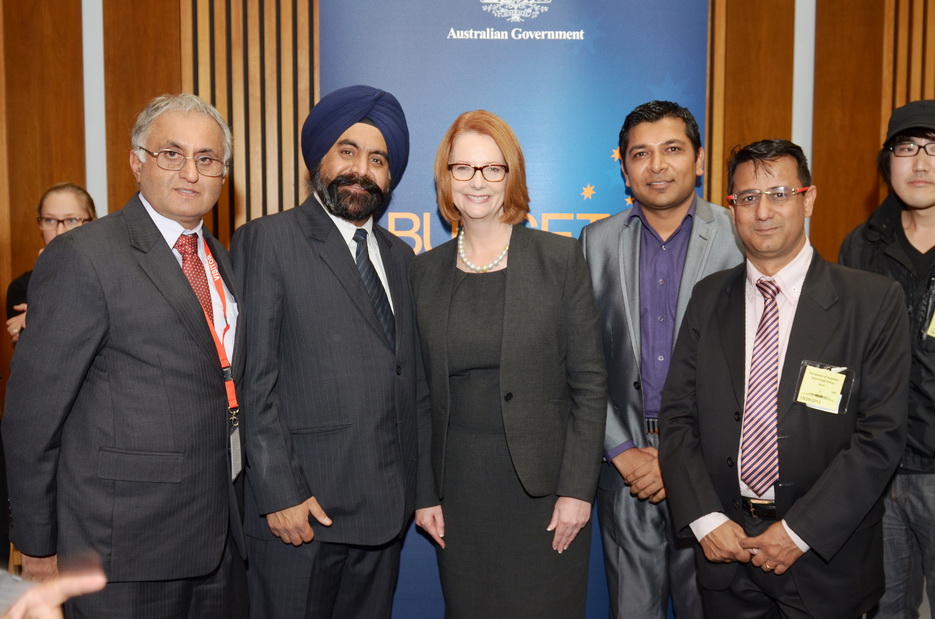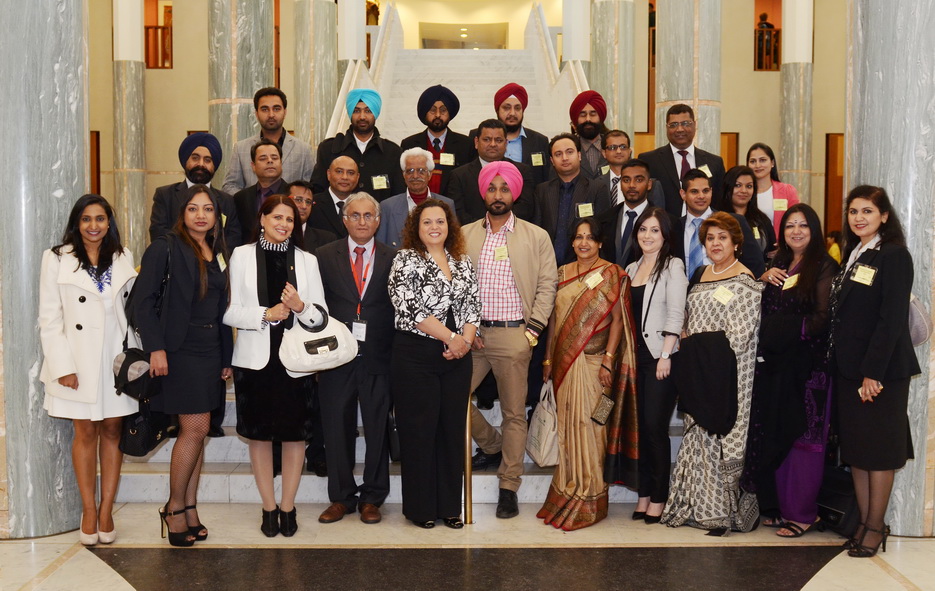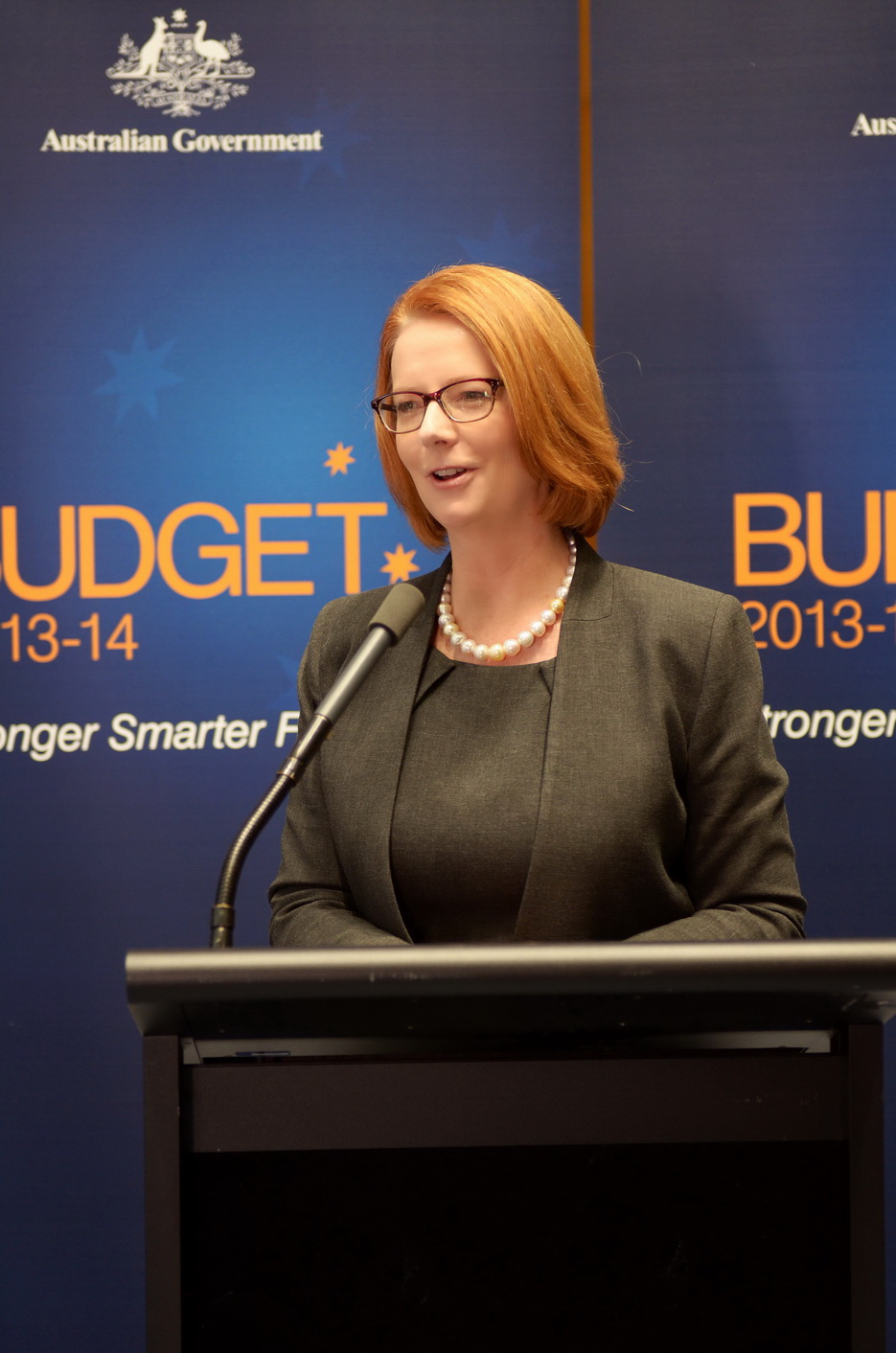
Sada-e-Watan
Sydney ™
sadaewatan@gmail.com

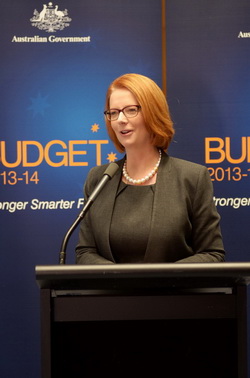
The Prime Minister HONOURABLE JULIA Gillard’s ethnic media post budget 2013-2014 conference in Canberra

(Exclusive Coverage to Sada-e-Watan by Mr. Rajesh Kumar)
"With just four months until the election, it's the most unlikely pre-election budget you could imagine, with loads of nasties and next to no sweeteners. It is more like a post-election budget, particularly the kind you get after a change of government" wrote Ross Gittings a prominent economics writer for the Sydney Morning Herald.

Prime Minister Julia Gillard invited ethnic media at her post budget conference to outline the government's budget to take questions.
Sub Continent Media made at least fifty percent of the people gathered.
At the budget the briefing were The Prime Minister, the HONOURABLE JULIA GILLARD MP, Minister for Employment and Workplace Relations; Financial Services and Superannuation, the HONOURABLE BILL SHORTEN MP, Minister for Immigration and Citizenship, the HONOURABLE BRENDAN O'Connor MP, Assistant Treasurer the HONOURABLE DAVID BRADBURY, Minister for Families, Community Services and Indigenous Affairs the HON JENNY MACKLIN MP, Minister for Ageing The HONOURABLE MARK BUTLER MP, Minister for Multiculturalism, the HONOURABLE SENATOR KATE LUNDY, Parliamentary Secretary for Multiculturalism and Pacific Islands the HONOURABLE SENATOR MATT THISTLEWAITE, Attorney General the HONOURABLE MARK DREFUS QC MP, the Minister for Energy and resources the HONOURABLE GARY GRAY AO MP, the Chairperson of Sub Continent Ministerial Consultative Committee MICHELE ROWLAND MP, JULIE OWENS MP and LAURIE FERGUSON MP.
 Some of the key features of
the budget are:
Some of the key features of
the budget are:
1) Infrastructure: $24 billion
over five years to upgrade and expand urban public transport infrastructure in
Sydney, Brisbane, Melbourne and Adelaide.
2. Schools/education: $9.8 billion over six years for a new needs-based funding
model for schools that increases Commonwealth funding for schools to $104.3
billion from 2014 to 2019- a once in a generation school reform to enhance
Australia's future productivity and wellbeing.
3. Higher education: $97 million to increase the number of
Commonwealth-supported university places and an additional $186 million for
research infrastructure.
4. Disability: $14.3 billion in new investment for Disability Care Australia, a
national disability insurance scheme that will be paid for with an increase in
the Medicare levy. Australia's most fundamental social reform since Medicare.
5. $1 billion investment in boosting Australian innovation, productivity and
competitiveness under A Plan for Australian Jobs.
Australia’s migration program will be maintained at 190 000 places in 2013-14 to help fill skills shortages and reunite Australian families.
Also massive $43 billion of savings were announced making some harsh decisions such as some $25 billion comes from tax increases, closing tax loopholes, increasing the excise on cigarettes and reducing superannuation concessions.
In another article in Sydney Morning Herald wrote about expenditure during the GFC which has met criticism from the Liberal Party and the right wing media:
"On the one hand, it is probably the government's most important policy achievement. The Organisation for Economic Co-operation and Development estimates it saved up to 200,000 jobs.
The experience from the 1990s recession was that a very large proportion of those who lose their job in the first year of a recession are still unemployed 10 years later. There are huge long-term social and economic benefits in averting a downturn.
Not to mention if we hadn't gone the stimulus route, the economy probably would have gone into recession, for which Labor would have been blamed; it would have been bundled out of office anyway."
Poonam Chhibber when asked about her thoughts of the Budget she said, "I
don’t see this as an election budget at all, there are no general sweeteners in
there – they’re not giving anything away to buy your vote.
"But there are some good structural changes that really should have started last
year to try and get the budget to move into surplus like scraping the baby
bonus. As an early childhood educator I have seen families struggling to provide
for their children with special needs with resources and help that they need.
"Funding infrastructure will improve everyday commute and create jobs which is
big requirement these days. Investment in school education is another big spend
which means more facilities for schools, which in turn will provide better
opportunities & facilities for students.
"As I said before it is not a populist budget but one which is required in
these days and times
Unlike the previous Liberal governments, when sops were offered in election year
budgets, this is a bold budget keeping in long tern interests of the nation This
budget reflects not only an investment in future of Australia but also sets an
example for others to keep nation’s interests above political gains."
Government has also come for criticism for the deficit in the last year's budget after earlier forecasting a surplus. No one had anticipated that the there would such rapid deterioration in the economy. This rapid wind down has been the steepest in 50 years. Somehow the opposition and the media would make you believe things have never been so bad.
Under Labor Australia has AAA rating, Low debt, Low unemployment, Low
interest rates
and Low inflation.
On the footnote The Age a sister paper of the Sydney Morning Herald has noted in the budget to reply speech By Leader of Opposition Tony Abbott that "Tony Abbott's proposed fiscal approach, outlined in his budget reply on Thursday, is based on some disconcerting gaps in logic. Mr Abbott says that if the Coalition were to be elected on September 14, it would aim to ''take the budget pressure off Australian households, and … strengthen our economy so that, over time, there's more to go round for everyone''. But his initiatives suggest the Coalition would be a government for business, not the people. Mr Abbott may offer platitudes suggesting the Coalition cares for the broad swath of middle Australia and their ambitions, but its focus will be profit above people; those on low incomes and the disadvantaged will be left behind."
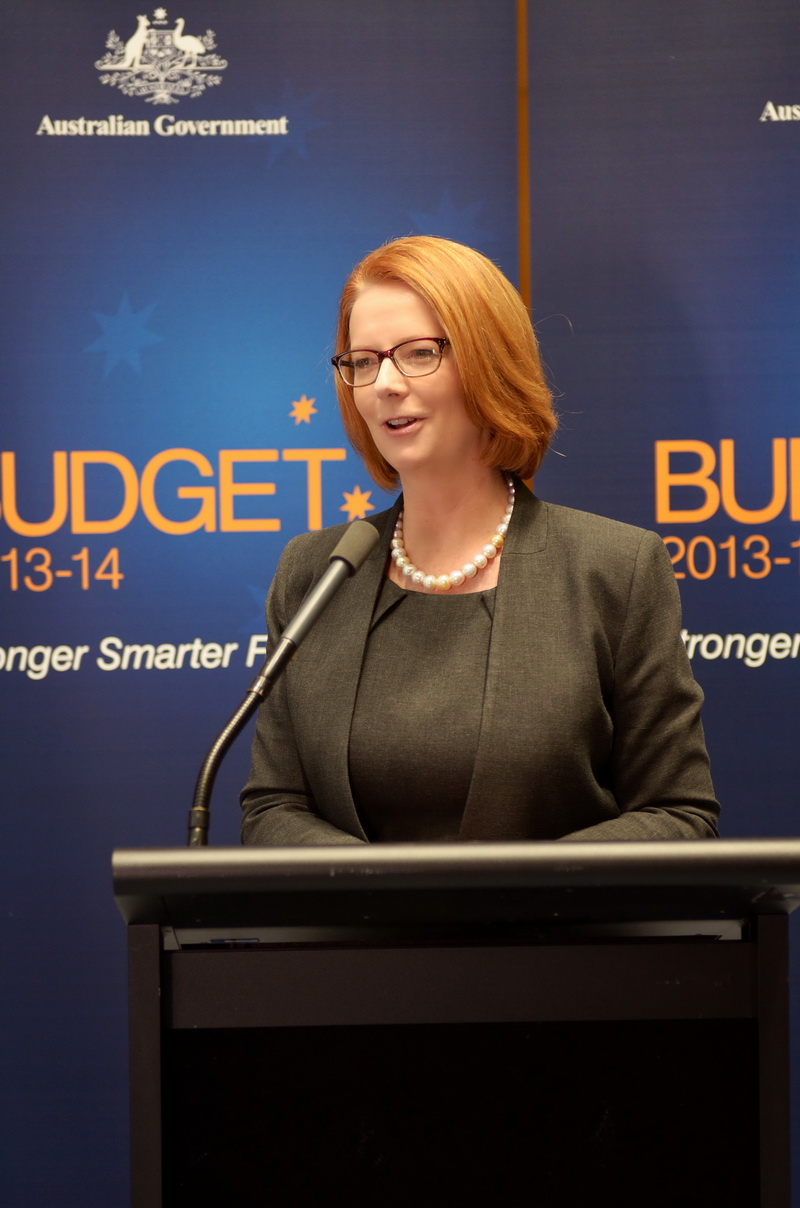
The Prime Minister Honourable Julia Gillard MP
Minister for Families, Community Services and Indigenous Affairs the Hon. Jenny Macklin
Minister for Multiculturalism the Hon. Senator Kate Lundy
Assistant Treasurer the Hon. David Bradbury
Parliamentary Secretary for Multiculturalism and Pacific Islands the Hon. Senator Matt Thistlewaite
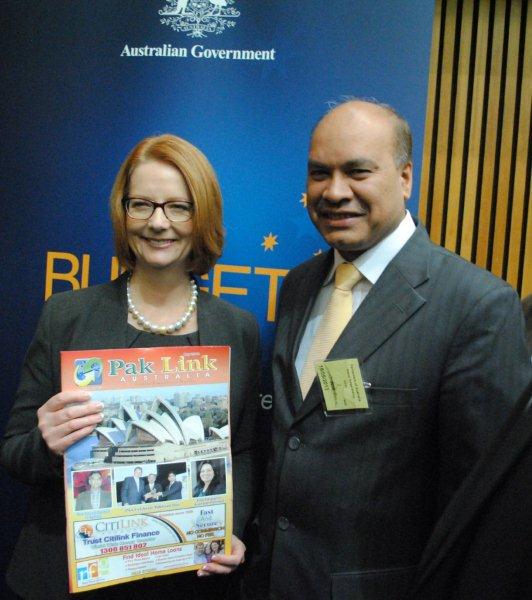
.jpg)
